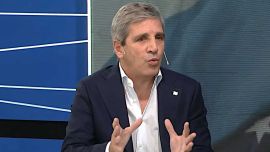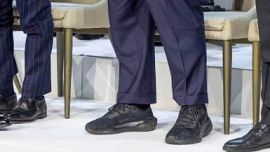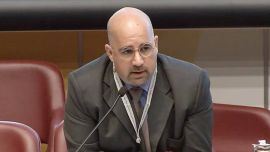"There's something we must not have done right," said President Alberto Fernández, in the aftermath of poor results in last Sunday’s PASO primaries. With almost half the country living in poverty and rampant inflation, the margin for a comeback looks slim.
Frente de Todos, the ruling coalition that groups together Peronist movements, won less than 31 percent of votes at a national level. The unexpected result has ignited fears that the government will lose its majority in the Senate in the November 14 midterm elections, while all but extinguishing the coalition’s hopes of gains in the lower house Chamber of Deputies.
"It is a catastrophic scenario for the government,” says political scientist Carlos Fara. “With these numbers the view is that the opposition’s victory will be consolidated in two months' [time].”
While last Sunday’s elections were primaries to define the candidates in November, they serve as a type of national opinion poll foreshadowing the likely outcome.
As the ballots were tallied, it emerged that the centre-right coalition Juntos, of former President Mauricio Macri, had won 40 percent of the votes across the country. Above all, the opposition managed to win with a five-point advantage in Buenos Aires Province, Peronism’s traditional stronghold and the largest electoral district in the country.
"It is difficult to think that the ruling party can do something to reverse these trends. There is a strong inertia in society's gaze," political scientist Diego Reynoso, who directs surveys on political approval ratings at the private university of San Andrés, said in an interview.
Poverty and inflation
Fernández took office in December 2019, topping a ticket with former president Cristina Fernández de Kirchner, Argentina’s vice-president. His government still has two years in office, but the economic outlook is challenging.
"I trust that the path that we started in 2019 will not be altered," the Peronist leader said on Monday at his first official event since the PASO defeat.
The government has a lot of pending issues on the table, not least its US$44-billion debt with the International Monetary Fund. Fernández’s team must successfully negotiate an extended facilities agreement to replace the stand-by agreement signed in 2018 during the Macri government, originally worth US$57 billion.
Argentina has been in recession since 2018 and last year, in the midst of a long and strict lockdown due to the Covid-19 pandemic, it registered one of the biggest economic contractions in the region: 9.9 percent of GDP.
Meanwhile, Argentines are struggling with one of the highest inflation rates in the world (prices rose 29% from January to July), with poverty affecting 42 percent of the population. Since the start of the pandemic, the peso has depreciated by around 40 percent, despite strict foreign exchange and capital controls.
Faced with devastating results in the primaries, the ruling coalition is now torn between radicalizing or moderating.
Taking “the course of radicalisation, especially in economic matters, makes little sense. The acceleration of inflation would be almost immediate if there are signs that they are going down that road," warned analyst Marcos Novaro.
"It seems to me that the government has a difficult time [ahead]. There are even reasons to think that it could be worse, because in November more people will vote and those people are more in line with boredom and disappointment than with enthusiasm towards the government." Novaro told AFP.
Rising stars
The primaries also crowned the rise of a new figure, that of economist Javier Milei, whose provocative right-wing speech appeals to libertarian ideals. He was the third most-voted candidate in Buenos Aires City, scoring 13 percent.
"Freedom, damn it, freedom, damn it!", Milei shouted Sunday night to followers. He says that "lions that must wake up," evoking a style similar to that of Brazilian President Jair Bolsonaro or former US president Donald Trump .
A regular TV show panellist in his 50s, with several published books, a radio programme, wild hair and even a foray into the theatre on his CV, Milei has captured the young and male vote that rejects the traditional political class.
"He responds to the strong dissatisfaction of certain urban sectors. It remains to be seen if it manages to radiate into the rest of the country," said Reynoso.
The results of the midterm legislative elections in November will shape Congress and the government’s ability to control the agenda in its the final two years of its term. It will also serve as an ideal scenario to promote those who wish to contest the presidency in 2023, when Fernández would like to seek re-election.
related news
by Nina Negron, AFP




















Comments